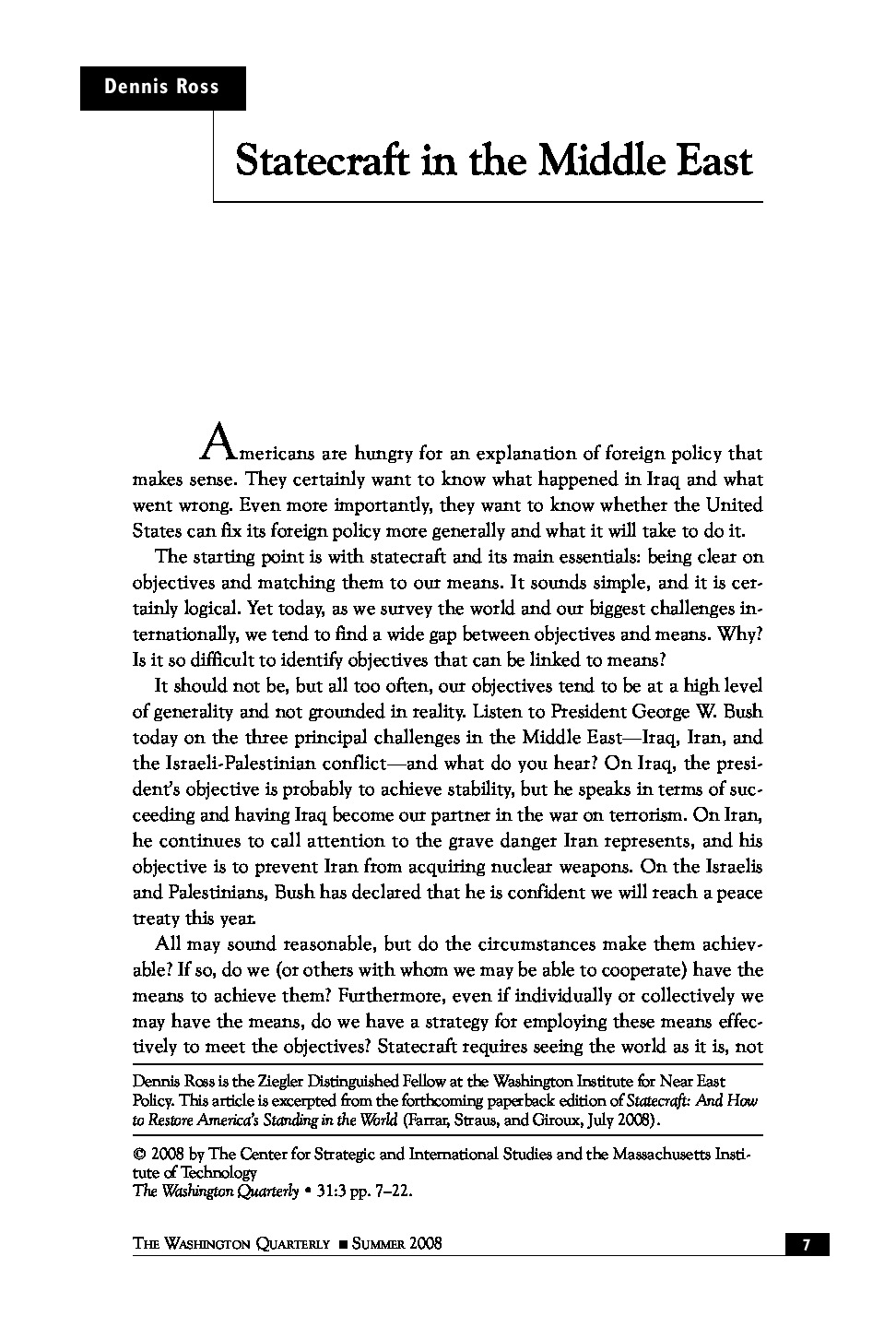This article is also available on the Washington Quarterly website.
Americans are hungry for an explanation of foreign policy that makes sense. They certainly want to know what happened in Iraq and what went wrong. Even more important, they want to know whether the United States can fix its foreign policy more generally and what it will take to do so.
The starting point is with statecraft and its main essentials: being clear on objectives and matching them to our means. It sounds simple, and it is certainly logical. Yet today, as we survey the world and our biggest challenges internationally, we tend to find a wide gap between objectives and means. Why? Is it so difficult to identify objectives that can be linked to means?
It should not be, but all too often, our objectives tend to be at a high level of generality and not grounded in reality. Listen to President George W. Bush today on the three principal challenges in the Middle East -- Iraq, Iran, and the Israeli-Palestinian conflict -- and what do you hear? On Iraq, the president's objective is probably to achieve stability, but he speaks in terms of succeeding and having Iraq become our partner in the war on terrorism. On Iran, he continues to call attention to the grave danger Iran represents, and his objective is to prevent Iran from acquiring nuclear weapons. On the Israelis and Palestinians, Bush has declared that he is confident we will reach a peace treaty this year. All may sound reasonable, but do the circumstances make them achievable? . . .
Washington Quarterly




